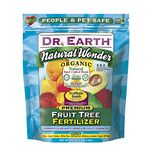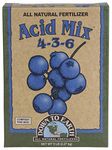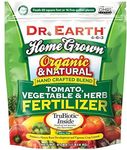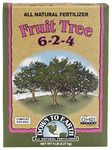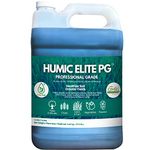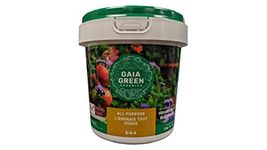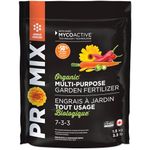10 bestOrganic Garden Fertilizersof February 2026
112M consumers helped this year.
1
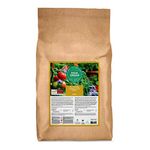
Young Urban Farmers Gaia Green All Purpose Fertilizer 4-4-4 20kg
Young Urban Farmers

9.9
14% off
2
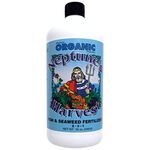
Neptune's Harvest Fish & Seaweed Blend Fertilizer 2-3-1 36 Oz
Neptune's Harvest

9.8
31% off
3
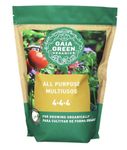
Gaia Green Organic 4-4-4 All Purpose Fertilizer 2kg
Gaia Green

9.7
4
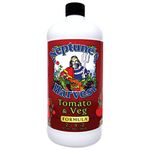
Neptune's Harvest TV136 Tomato & Veg Formula Fertilizer, 36 oz
Neptune's Harvest

9.5
5% off
5
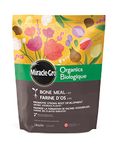
Miracle-Gro Organics Bone Meal 4-10-0, 1.36 kg
Miracle-Gro

9.3
Other
13% off
6
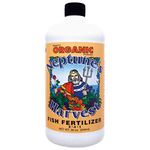
Neptune's Harvest HF136 Hydrolyzed Fish Fertilizer 2-4-1, 36 Ounce
Neptune's Harvest

9.0
7
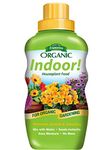
Espoma Company INPF8 Organic Indoor Plant Food, 8 oz
Espoma

8.8
8

Down to Earth Organic Bio-Live Fertilizer Mix 5-4-2, 25 lb
Down To Earth

8.6
9
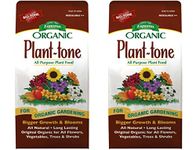
Espoma Organic Plant-Tone 5-3-3 Natural & Organic All Purpose Plant Food; 4 lb. Bag; The Original Organic Fertilizer for All Flowers, Vegetables, Trees, and Shrubs. - Pack of 2
Espoma

8.3
10
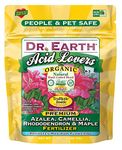
Dr. Earth 75557 1 lb 3-4-3 MINIS Acid Lovers Azalea, Camellia, Rhododendron and Maple Fertilizer
Dr. Earth

8.0
A Guide to Selecting the Best Organic Garden Fertilizers
Choosing the right organic garden fertilizer can make a big difference in the health and productivity of your plants. Organic fertilizers are made from natural materials and help improve soil quality over time, making them a great choice for sustainable gardening. When picking a fertilizer, it's important to understand what your plants need, the condition of your soil, and how different fertilizers work. By learning about the key specifications, you can select a product that matches your garden's requirements and supports healthy, thriving plants.
N-P-K Ratio
The N-P-K ratio stands for Nitrogen (N), Phosphorus (P), and Potassium (K), which are the three main nutrients plants need. This ratio is usually shown as three numbers on the packaging, like 4-6-3. Nitrogen helps with leafy growth, phosphorus supports root and flower development, and potassium aids overall plant health. Low numbers (like 2-3-2) are gentle and good for young or sensitive plants, while higher numbers (like 8-6-4) are more concentrated and suitable for established, fast-growing plants. To pick the right ratio, consider what you’re growing: leafy vegetables benefit from more nitrogen, while flowering plants and root crops need more phosphorus and potassium.
Source of Ingredients
Organic fertilizers can be made from plant, animal, or mineral sources. Common ingredients include compost, manure, bone meal, blood meal, and seaweed. Each source releases nutrients at different rates and may add unique benefits to the soil. For example, compost is slow-releasing and improves soil structure, while blood meal provides a quick boost of nitrogen. If you want a slow, steady feed, look for plant-based or composted products. For a quick nutrient boost, animal-based fertilizers are more effective. Choose based on your garden’s needs and your preference for certain materials.
Release Speed
Release speed refers to how quickly the nutrients become available to plants. Slow-release fertilizers break down over weeks or months, providing a steady supply of nutrients, while fast-release fertilizers act quickly but may need to be reapplied more often. Slow-release is ideal for long-term soil health and for gardeners who prefer less frequent applications. Fast-release is useful if your plants show signs of nutrient deficiency and need immediate help. Think about how often you want to fertilize and whether your plants need a quick fix or ongoing support.
Form (Granular, Liquid, Powder)
Organic fertilizers come in different forms: granular, liquid, and powder. Granular fertilizers are easy to spread and work well for garden beds and lawns. Liquid fertilizers are mixed with water and are great for container plants or for giving a quick boost. Powders are often mixed into soil or water and can be versatile. If you want convenience and slow feeding, granular is a good choice. For fast results or for use with indoor or potted plants, liquid or powder forms are better. Choose the form that fits your gardening style and the types of plants you have.
Additional Nutrients and Microbes
Some organic fertilizers include extra nutrients like calcium, magnesium, or beneficial microbes. These can help correct specific soil deficiencies or improve plant health by supporting root growth and disease resistance. If your soil is lacking certain nutrients or you want to boost soil life, look for fertilizers with added minerals or microbes. If your soil is already healthy and balanced, a basic fertilizer may be all you need. Consider getting a soil test to know if you need these extras.
Best Reviews Guide Newsletter
Get exclusive articles, recommendations, shopping tips, and sales alerts
Sign up for our newsletter to receive weekly recommendations about seasonal and trendy products
Thank you for subscribing!
By submitting your email address you agree to our Terms and Conditions and Privacy Policy
